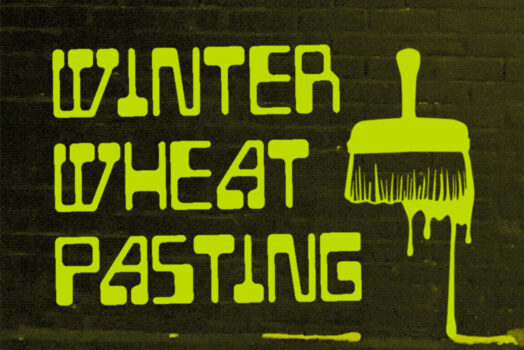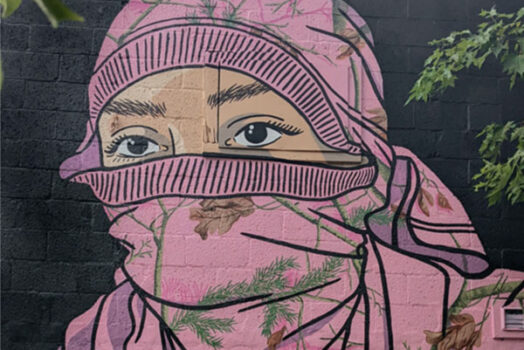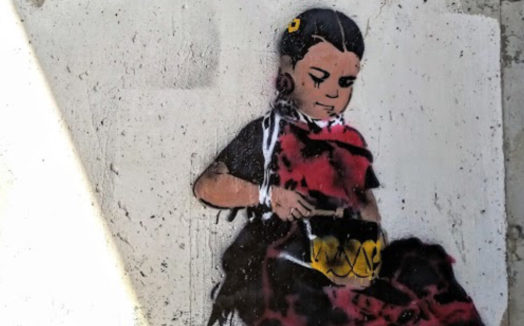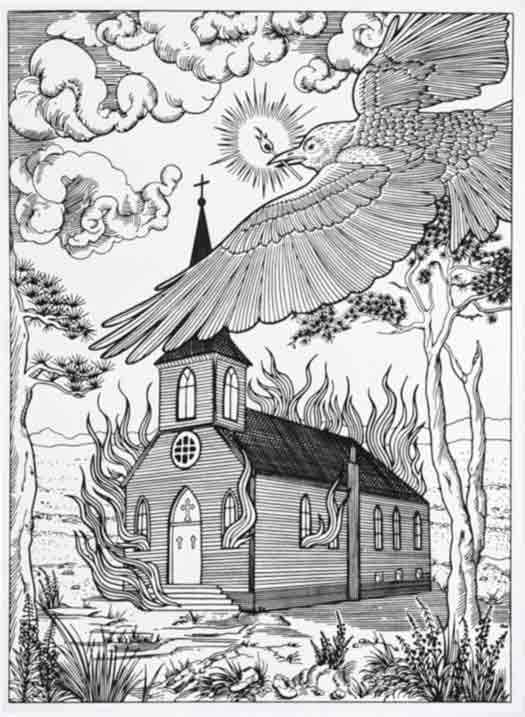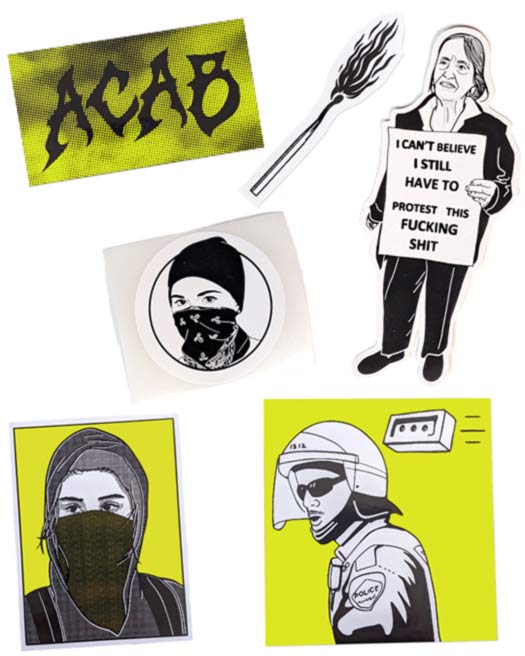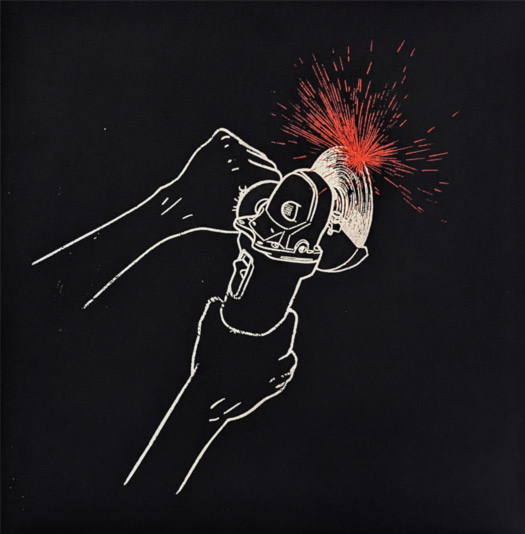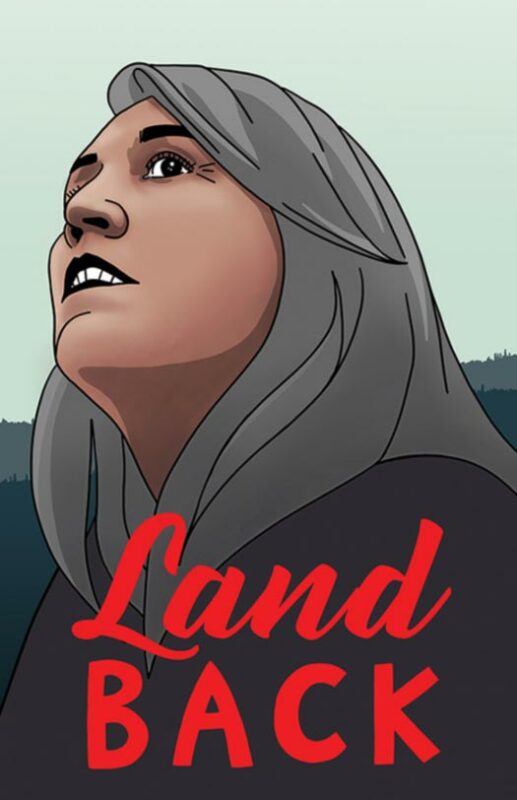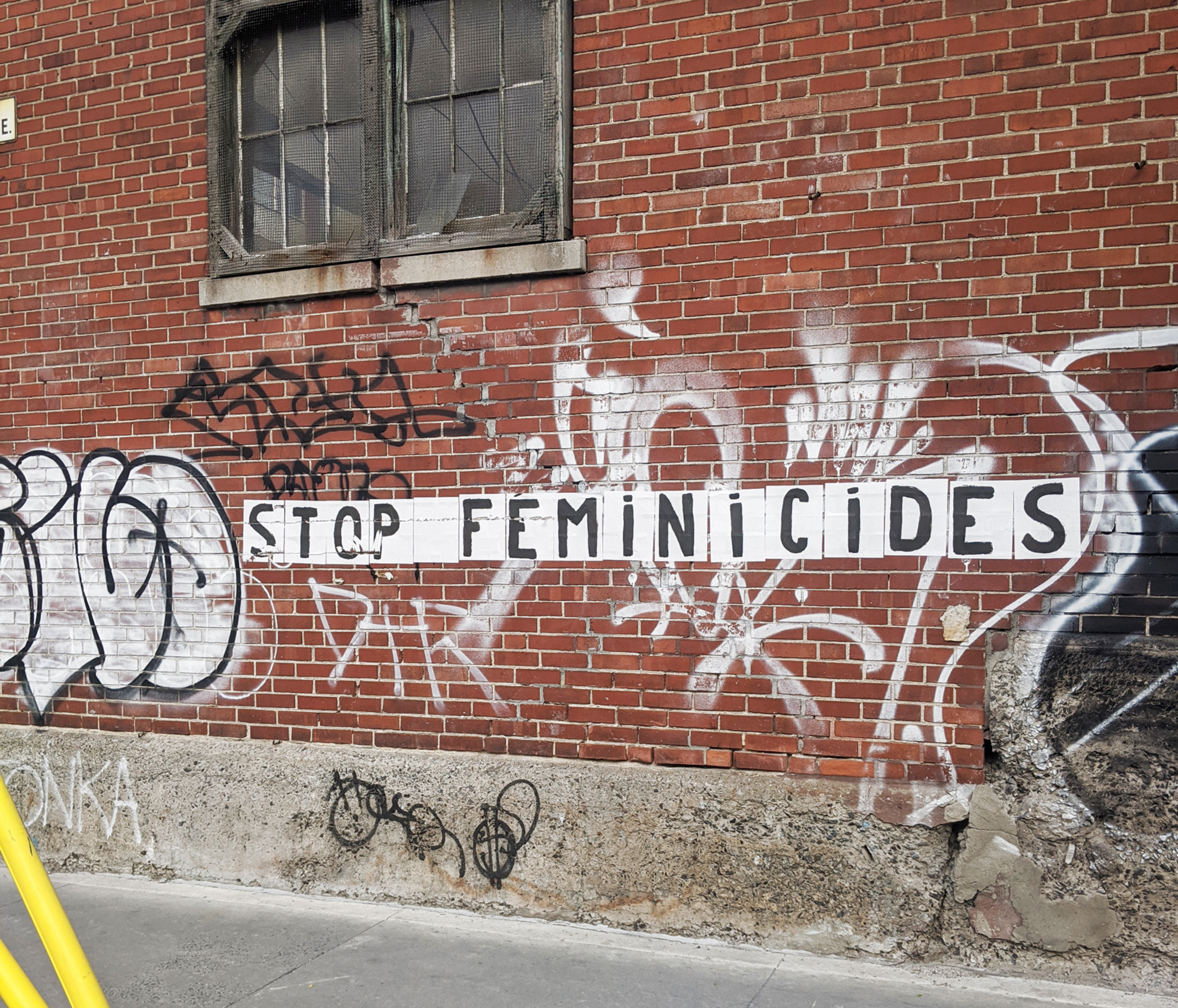
It started just over two years ago in Paris, and spread like wildfire by social media virality to Brasil, Germany, Spain, UK, the Netherlands, Syria, and many more places. The trend is political wheatpaste in its simplest form: feminist short sentences and slogans, written letter by letter on regular printer paper, glued everywhere and anywhere people can see them.
In so-called Montréal, Canada, they have been impossible to miss since their appearance in 2020. The colleuses (approx. translation to wheatpaster) or colleureuses (gender neutral spin) are anonymous, work in chosen gender non-mixity, and make their decisions horizontally. One group has around 60 members participating one way or another. Over the course of the last year, there has been over 200 wheatpastes up on the city walls. This impressive range makes the feminist collages by far the biggest consistent street art practice Montréal has seen.
I was curious about a few things so I sent questions to the two Montréal-based groups who are visible on Instagram @collages_feminicides_montreal_ and @collages_feministes_montreal. Here are some answers by different collective members (edited for form and length).
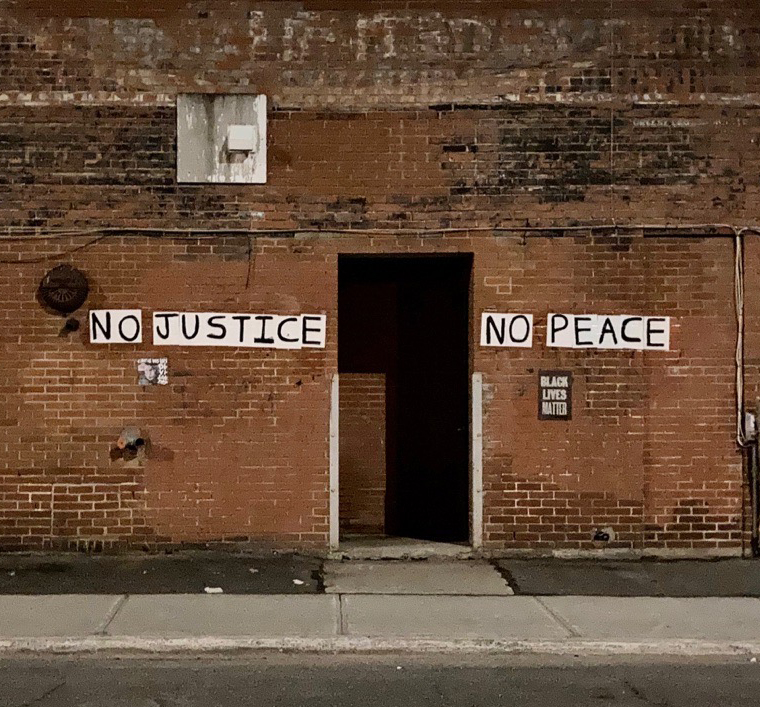
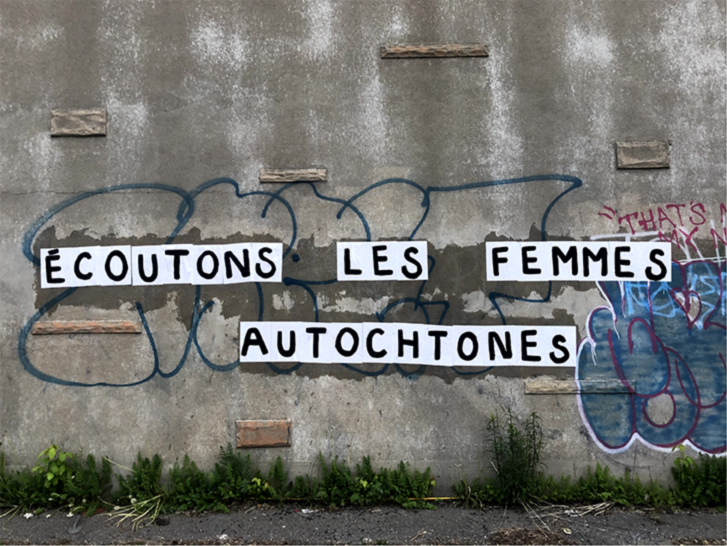
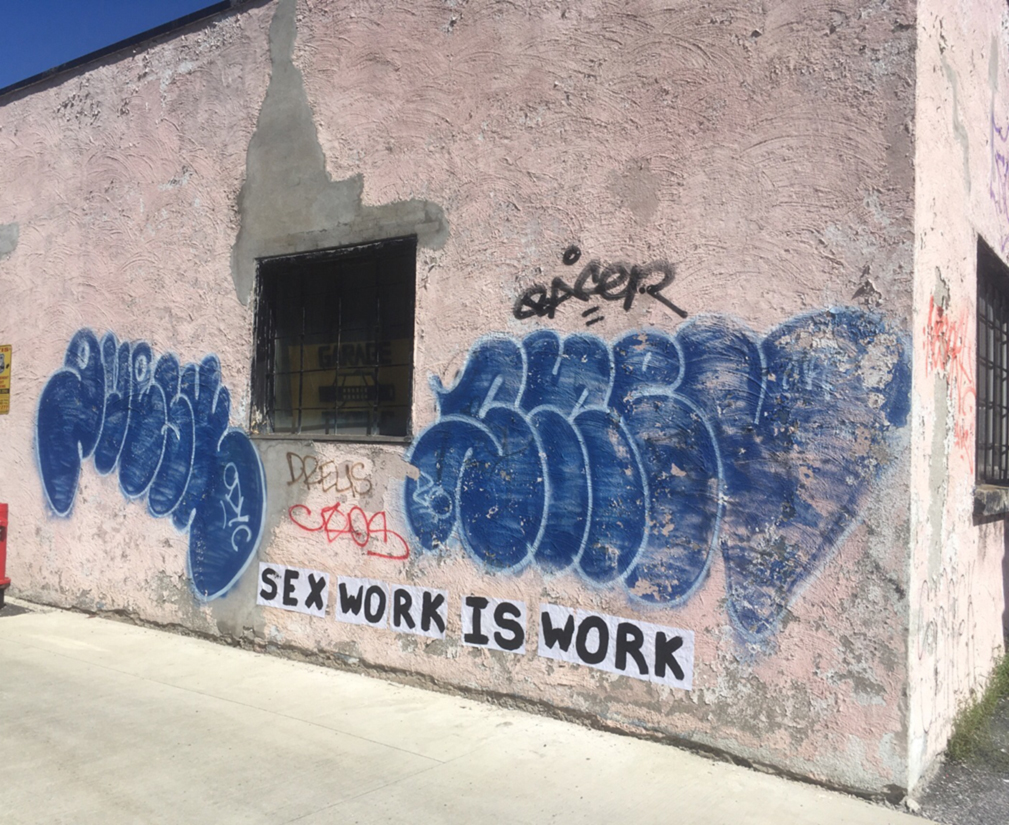
Why did you get into the collages?
“There seems to be a few reasons that we have all have in common such as : anger, the need for change, and strong feminist, anti-racist and anti-patriarchy core values. More over the collective is friendly, and is a place, to chat, share ideas and organise within a feeling of support and sisterhood.”
“I was very impressed by the messages I saw regularly on the walls and wanted to connect for that reason and because I knew it will be a safe space to meet new people with the same political and social views as mine. Feminism became more and more popular the last few years. As I do identify without any doubt as a feminist, I also noticed that some feminists are not as inclusive as I wanted them to be, more specifically towards trans people and sex workers. With the collages supporting sex workers, trans people and any other gender minority posted on Instagram by Collages-feminicides-Montreal, I was confortable that it would be an inclusive group, and that was very important for me.”
Could you speak on the human connections with the other colleuses and colleureuses?
“This is an important part of this movement for me, the human connections. There is a feeling of freedom and protection when we are walking the street together to do some collages. There is a lot of different people with different origins, ages, races, etc. but there is always that feeling of inclusion and empowerment when we are together. “
How important is the online community of colleuses and colleureuses?
“The social media networks have been very important the last few years, not just for collages but for feminism in general. A mouvement like #Metoo that spread so quickly and worldwide was completely impossible before social media. That connection to the entire world allowed people to realize that they are sharing the same struggles, the same traumas, fighting the same oppression.The voices of all those people talking together is something that we have never seen before. It is very important and for people suffering to relate to those stories and feel less alone and for people in general to realize the size of the issue that we are facing as women, as trans, as a minority in general. Because of social media, because of collages everywhere, we can no longer say that we did not know, and we can no longer say it is not a real problem or just for a few people. There is a tremendous amount of people sharing their feelings, opinions and messages of resistance. Now, nobody can say anymore that it is just in our head, that we are exaggerating. It’s a reality and it is now visible on virtual walls and street walls. “

Can you speak to the advantages and disadvantages of having a practise that is simple and restricted in its form?
“I think the biggest disadvantage we see to it is not being able to paste huge sentences, we have so much to say but time is counted when we paste, and it can be dangerous / impossible to do a lot of letters. “
How important is it for you or your group to connect to other local activists and political struggles? If so, how do you do it?
“We go to rallies in groups, we sometimes create banners that look like our pasting style, we also paste phrases that are in relation to the rally on the paths of rallies the night before to support the movement. Some of us also volunteer in various associations. It is a constant conversation we have within the group, how to make it as diverse as possible, we read and share a lot of testimonials or articles and we have discussions with people who would like to learn from us, we help out and ask if we are unsure. We have a collaboration planned with people who have a lot of anger to share and we will be helping them discover the art of pasting safely, these are the kind of skill share we’d like to do more of.”
How would you describe the connection(s) between your practice and other graffiti writers and street artists?
“It’s quite different I think. Our goal isn’t so much the visual and the name like graffiti, but the message. We have had this conversation many times within the collective to respect graffiti rules and not cover tags and throws. But it has happened, and we take the mistake as a group, and have gone to remove the paste the next day if any offence was made. Wheatpaste is quite different than spray paint, and I’m not sure all artist understand what we are doing and how we are trying to do it well! “


Are there feminist collages in your city? Let us know in the comments section
